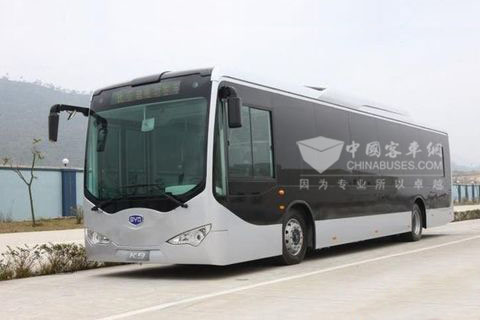BYD:
http://aktien.onvista.de/charts.html...x=76&send.y=10
in Hong Kong:

 BYD's Storage Strategy
BYD's Storage Strategy
An energy storage unit is essentially a large battery pack. BYD currently makes one such product and plans to add a second to its lineup based on an exclusive
"iron battery" technology.
Already available is a cabinet-shaped, 380-volt unit with an output of 200 per kwh. One of these units has been installed at BYD's Future Village to provide outdoor power.
BYD says the unit uses about 1,200 "iron batteries" to store 800 KW of electricity, which could satisfy eight months of consumption for a household of four. The unit has a 20-year lifespan and can be fully charged in four hours.
A future product is a 380-volt energy storage unit with an output of 1 MW per hour and 4,000 kwh of storage capacity. It's now undergoing tests at BYD's research institute and hasn't been released to the public.
http://english.caing.com/englishNews...l=111&page=all
...
ferrous-iron batteries, which Wang said were safer, more durable and less than half the cost of lithium-ion batteries, which most major automakers are planning to use in their electric vehicles.
------
"iron batteries" ist mehrdeutig. Es kann u.a. dies hier meinen:
BYD to roll out electric bus K9 this month
By Amanda Zheng From Gasgoo.com
September 21, 2010
Chinese battery and automaker BYD Co. will roll out its first electric bus,
BYD K9, at the end of this month, and display the zero-emission bus at the "China (Changsha) Technology Seminar" during October 11-12, Xinhua News Agency reported Wednesday.
The
ironcell-powered BYD K9 is now is in the final phase of assembly and debugging. With an impressive silver body, fashionable extra big window and vivid BYD logo, the K9 is 12
meters long, weighting 18 tons and a one-step low floor bus.
Similar with ordinary buses in appearance,
the K9's running cost is otherwise 15% lower than the existing diesel buses due to the use of new energy.
Operating costs of K9 come to 15% of that of a diesel vehicle, said the executive, noting that the environmental-friendly model makes it
possible for a company to save CNY 170,000 a year. K9, expected to go through a test by the government at the end of this year, will be
available in Changsha at around CNY 2 million (=222'222€) at the beginning of next year.
The BYD K9
can run up to 300 Kilometers on a full charge, while ordinary buses can only run about 200 Kilometers at full capacity. One electric bus can thus save 170,000 yuan ($25,300) on running costs compared to a common bus, said Liu Xiangjun, general manager of Changsha BYD Auto Co., Ltd..
BYD is currently building 20 K9's in the Changsha base, and if the bus passes emissions test, practical driving assessment and other relevant tests, the company will then put the K9 into mass production and launch it to the domestic market immediately, Liu revealed.
The Chinese government has been active in establishing charging stations for electric buses and other supporting facilities across the country so as to ensure the smooth operation of electric buses.





Blog:
http://www.wallstreet-online.de/disk...td-mit-zukunft
News:
http://www.finanznachrichten.de/nach...yd-company.asp
http://www.finanznachrichten.de/nach...ompany-adr.asp